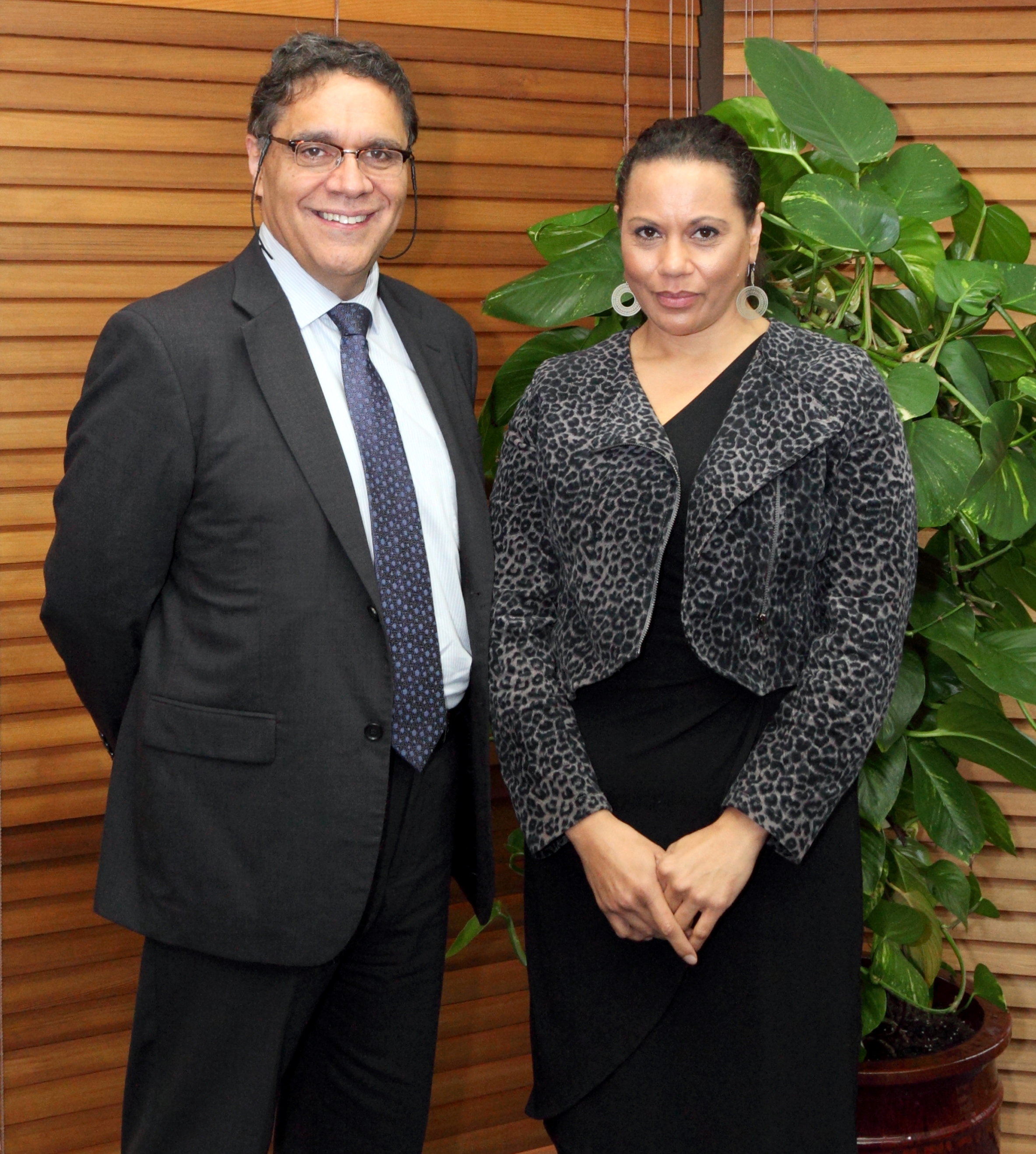
Professor Shane Houston and Ms Bettina King
Australians need to learn from their history to find a way that all people can be respected regardless of their differences, an indigenous speaker told a reception following a National Reconciliation Week Service at the Baha’i Temple in Sydney on 2 June.
Lessons from our history can be used to help us become better people and a better nation, said Professor Shane Houston, Sydney University’s Deputy Vice-Chancellor (Indigenous Strategy and Services), a Gangulu man from Central Queensland.
Special guests attending the service and reception included a member of the NSW Legislative Council and Parliamentary Secretary for Justice, the Hon. David Clarke, and Warringah Councillor Vanessa Moskal.
Among the Baha’i representatives were two members of the National Spiritual Assembly of the Baha’is of Australia, Professor Fariborz Moshirian and Dr Arini Beaumaris.
Professor Houston began his address with a tribute to his parents, acknowledging that he obtained hope from his mother, and clarity about the role of values in life from his father.
“Hope doesn’t mean we don’t have a journey to continue and there aren’t things to tackle, but we do have to accept that we have come some way,” he said.
“I like to think we are changing and that we have seen substantial progress.
“If you look at the last census I think we’ve got just over 22,000 Aboriginal graduates across the country– things have changed.”
Professor Houston said that much racism flows from ignorance.
It is easy for someone who is in the majority to say we should just “get over” racist remarks, he said.
“But put yourselves in the shoes of the other who hears those messages all the time, and understand why we might react the way we do.
“My solution is greater education. We need to think about the question of cultural competence. How do we operate in an environment where there is more than one culture in play and do so in the way that we respect the difference of everyone in the room.”
Australians need to walk together, owning the challenges we have, looking at the future and thinking what we could or should do.
Professor Houston said the objective of Reconciliation Week is not turning away from the bumpy journey.
“It’s about what the road ahead looks like and what sorts of values and perspectives we need to promote in order to ensure that our future learns from our past and is better than it.”
Spiritual response
The other keynote speaker was Bettina King, a Narrungga and Wardaman woman. A lawyer, she is a member of the Australian Baha’i Community.
Ms King gave an example from the experience of her mother to show why she has never thought that she as an Aboriginal person had to “reconcile” with non-Aboriginal people, as opposed to forming good relationships with them.
Ms King said two of her mother’s children were taken from her and placed in the home of non-Aboriginal families. According to Welfare records, it was done because they were Aboriginal and so they could assimilate into white society.
After one of the babies was taken away, her mother never saw him again. The only news she had of him was 15 years later when Welfare told her he had passed away in an accident, Ms King said.
“My mother never got over this– grief and trauma carried her through her life.”
Ms King said that when thinking about a spiritual response to reconciliation, she remembered Uncle Fred Murray, the first Aboriginal Baha’i.
“In the 1960s, when my mother was having her kids removed, he was over in London at the World Congress of Baha’is.
“I want to dedicate today to him. How amazing is it that an Aboriginal man got over to London and to speak to the World Congress of Baha’is –he had no rights, and yet he went to London to talk about his Aboriginal culture.
“That leads me to my own culture, a very strong culture, a very strong spirituality. I became a Baha’i because my spirituality aligned with the Baha’i Faith, and the teachings of Baha’u’llah are about unity. I believe in unity, I believe in the oneness of humankind– we are all humans.”
As chair of the reception, Ms Venus Khalessi said the Australian Baha’i Community was happy to have been a supporter of National Reconciliation Week since it began.
“In 1993 we were among the faith communities that started the Week of Prayer for Reconciliation, which was expanded in 1996 to become National Reconciliation Week,” said Ms Khalessi, Director of Public Information for the Australian Baha’i Community.
The Temple service included prayers and readings from the Baha’i Holy Writings and from the scripture of other world religions. There were also songs and chants performed during the service.
